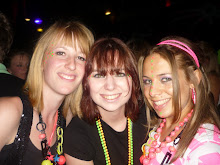Spin and spell test

The spin and spell wheel game gives the players the option to play individually or with a friend providing the social activity between people. Giving the user the freedom of which test to participate in the user selects the chosen subject and then clicks on the image that they would like to spell. The user would spell the word, if its correct they move onto the next question and if its wrong then the user has to retry.
However there were a few issues that were found when playing the game and could be a slight issue when younger children try to play the game. Every time the user clicks on a letter the wheel spins, bearing in mind that this is the title of the game however it is more time-consuming and the player has to relocate the letters every time a letter is picked. This does not effect the user spelling the letter more wastes more time.
The game relies on the game player knowing how to spell the word by looking at an image, the game provides sound to say the word which will be helpful. Research in the previous artefact showed that children can spell when relating to an image however does this mean that they have to see the word with the image to make this work?
The Spelling match game

The spelling match game consists of the player to finish the words. Like the pairs game that has been created in the previous artefacts, this game has the same game play however rather than matching the same image the player has to complete the word.
The game is limited to how many games the player can participate in before they repeat the spelling tests. The game is a good way for people to create words and a good way for children to learn words. The game provides all level of spellings giving the option for the students at all levels to play this game, although the general imagery is more appealing to the younger target audience whereas the some of the games are aimed at an older audience.
Word Safari

The word safari I believed is more based around the fun factor rather then focusing on learning spellings. The user has to write the spellings that they intend to spell, using the keyboard controllers the players has to create the words by catching the letters. If they make a mistake they receive a warning.
Bearing in mind this is aimed at helping people to spell however I do not think that this is good example of a spelling game. It is clearly aimed towards creating a fun game element rather then improving spelling. However the game could help the participant remember the words that are needed in each word. The game animation is the most appealing out of all three games and this could also attract more games players.

No comments:
Post a Comment